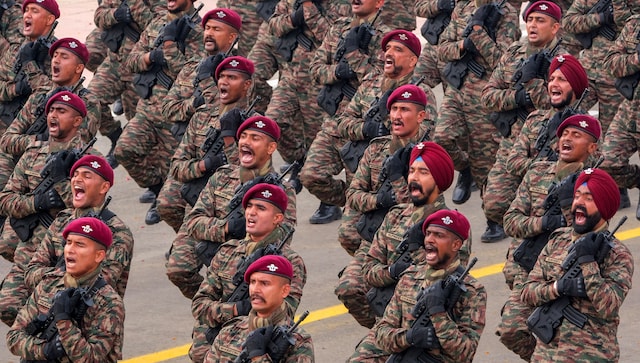The Indian Army has developed an AI-based chatbot to address the growing threat of online honey-trapping, a tactic often employed in international espionage. Inspired by instances where Indian military personnel fell victim to online deception by foreign intelligence operatives, the chatbot is designed to assess soldiers’ susceptibility to such traps.
Honey-trapping has emerged as a significant concern in the digital realm, with instances of online targeting involving Pakistani intelligence operatives and Indian military personnel, as well as defense executives.
In 2020, an Indian Army soldier named Shantimay Rana was apprehended on suspicion of divulging military information to Pakistan. Allegedly, he fell victim to a honey-trap orchestrated by a Pakistani woman, leading to the leakage of details related to the movements and manoeuvres of his military unit.
Similarly, a 27-year-old BrahMos Aerospace Engineer named Nishant Agarwal was arrested in a joint operation by Uttar Pradesh and Maharashtra.
He was accused of providing technical information to a Pakistani operative and was in communication with suspected Pakistani intelligence operatives using aliases such as “Neha Sharma” and “Pooja Ranjan.” Law enforcement revealed that despite the sensitive nature of his position, Agarwal had made himself vulnerable on the internet.
In 2023, Maharashtra’s Anti-Terrorism Squad (ATS) detained scientist Pradeep Kurulkar, who served as the head of the Defense Research and Development Organisation’s (DRDO) Research and Development Establishment Engineers Laboratory.
Kurulkar allegedly shared sensitive defense project information with an individual claiming to be Zara Dasgupta, an alleged Pakistani Intelligence Agent, as per the ATS. The DRDO scientist maintained contact with the supposed Pakistani agent through WhatsApp and video calls, even offering to disclose a “highly classified” report on the BrahMos missile project.
The newly developed AI chatbot, developed by the Territorial Army, operates on WhatsApp and engages in simulated conversations with soldiers, mimicking various scenarios. The objective is to identify individuals who may be vulnerable to deceptive tactics, enabling commanding officers to sensitize them to the risks of cyber threats.
The chatbot continuously learns from interactions, allowing for the addition of new scenarios to enhance training effectiveness. The deployment of this chatbot aligns with the Indian Army’s broader efforts to strengthen cybersecurity and leverage technology for defense preparedness.
In addition to countering online threats, the Indian Army is introducing another AI chatbot called SAMBANDH, to connect veterans and Veer Naris or war widows associated with the Indian Army.
SAMBANDH, a bilingual messaging bot based on WhatsApp, aims to provide a simple platform for one-on-one communication, addressing queries, and grievances, and disseminating relevant information.
These initiatives highlight the military’s commitment to enhancing awareness and resilience against evolving cyber threats while leveraging innovative solutions to foster communication and support among its community members. The adoption of AI chatbots underscores the ongoing efforts to stay ahead of technological challenges in the realm of defense and security.
Link to article –
Indian Army develops AI Chatbot to stop their officers from getting honey-trapped by spies





